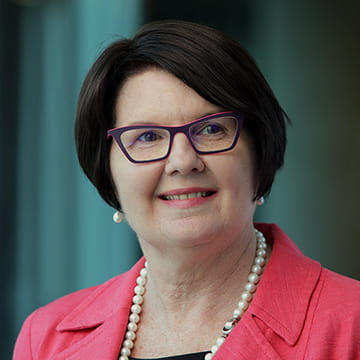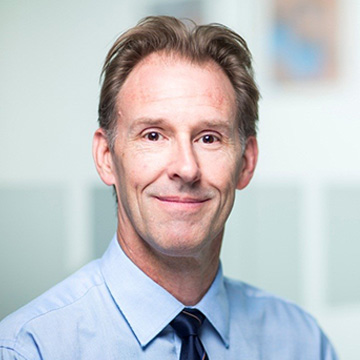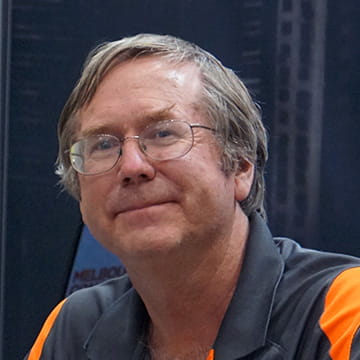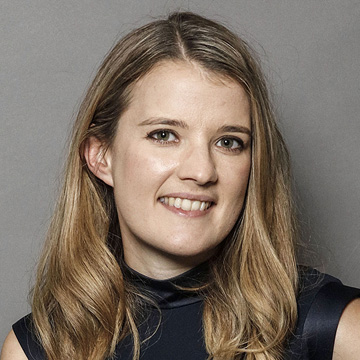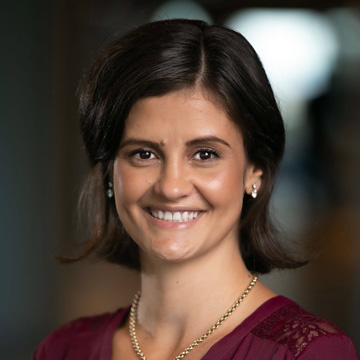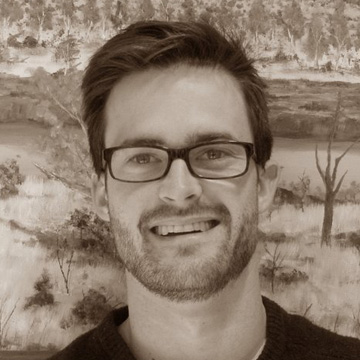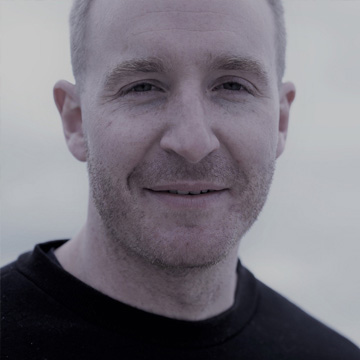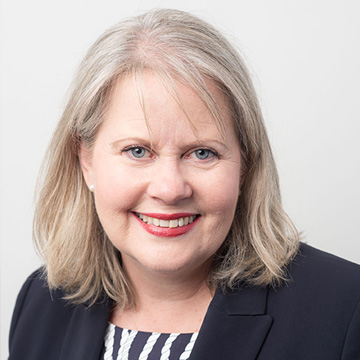Maria Rampa: Hello, I am Maria Rampa and thanks for joining me for this special bonus episode of Engineering Reimagined.
+++++
Last month more than 3000 participants from around the world descended on Melbourne for the World Engineers Convention, hosted by Engineers Australia and the World Federation of Engineering Organizations.
Known as the Olympics of Engineering, the convention is held every four years and this year marked the first time it had ever been held in Australia.
Engineering Reimagined established a recording studio in the exhibition hall of the event and we captured some fascinating conversations that we’ll be sharing with you as part of our Season 2 next year.
Over three days we spoke to some of the best and brightest in the industry about everything from flying cars, what makes a good engineer, the impact of renewable energy projects can have in bushfire prone regions, and much, much more. Have a listen! We hope you enjoy this special highlights episode featuring remarkable insights from our Aurecon hosts and guests.
+++++
First up, we received a range of responses from our guests when we asked them what is needed to be a successful engineer.
Lydia Gentle from BHP named grit and inquisitiveness.
Lydia Gentle: I think they need to be inquisitive but they need to have grit. I think as engineers to be current and the way that we're progressing on the fourth industrial revolution is that you need to really challenge everything. You need to understand why things work and how you can either make it better or quicker or cheaper or safer. But understanding that even though if you have an idea there is a high probability, it won't be successful the first time. So you need to have that grit and tenaciousness to never give up, to keep trying to keep looking at new ways and then ultimately to persevere for an outcome.
Aurecon’s Dr Kourosh Kayvani asked the same question of Professor David Cropley from the University of South Australia.
Kourosh Kayvani: I'd be interested in your views about this sort of, are there consistent traits to innovators or are there unexpected or unconventional traits that you can name?
David Cropley: Probably the number one such trait is this idea of openness to experience. So many studies have shown that people who are high in openness tend to be high on creativity. So even just trying new things or driving a different way to work or trying a new restaurant for the first time, trying new activities and so on, are all ways that we can build and develop this skill in openness. And we can use that to drive up our capacity, because the more open we are to new ideas, the more, for example, we're able to generate interesting, diverse solutions to problems.
Another really important one is the so-called tolerance for ambiguity or tolerance for uncertainty. So some people ... I always like to say that there are two kinds of people in the world. There are people who when they don't know what to do, they do nothing. And there are other people who when they don't know what to do say, well I'm going to try something. And it's that tolerance, that ability to say, I don't know what to do here, but I'm going to try something that's an important characteristic for creative and innovative people that they're prepared to try something, they're more comfortable with risk, they're open to new ideas and things like that.
Then on the flip side, I would say there aren't any particular sort of surprising or unusual characteristics, and that's probably a good thing, because it means that we do understand what makes up a creative person and there are not sort of surprising things that are hard to develop or highly unusual. It's a pretty stable sort of picture of what makes a creative person.
Kourosh Kayvani: Yeah, and it's the ...both points you raise about particularly the open mindedness and that comfort with ambiguity resonates strongly with me, particularly in the context of innovation tools that have been rolled out, which are great enablers, design thinking is one of them. But in some way you've got to be careful that doesn't become the new dogma, because it's template driven. If it's interpreted as this is the template for innovation, of course innovation process can be acting as an accelerator, but it can't be at the expense of open-mindedness.
And Felicity Furey from Swinburne University of Technology named something entirely different.
Felicity Furey: I remember finishing a panel and at the end I met Ming Long and we were asked a question on the panel: "what's like one skill that you need to be a good engineer?" And I think I said something like persistence. And she said to me, "No, you don't need anything. You are enough." And I nearly cried when she said that to me. I thought, "What? I'm like, just me being me, I'm enough." So that would be my first thing to engineers is say, "you are great the way that you are. Learn about your strengths and really leverage those." I wish, that's probably the second thing is, learn your strengths and what they are. I wish I learnt my strengths early on. And the second, or the third thing would be, that people aren't going to know what you want unless you actually tell them and communicate it.
Another topic we chatted about with our guests was the shortage of engineers. It’s a global challenge and many solutions were discussed. Aurecon’s Louise Adams asked the President of Engineers Australia, Trish White, for her advice.
Louise Adams: Now we know that one of the themes that comes up a lot, for many countries around the globe when it comes to delivering infrastructure requirements and the major projects that we're seeing, and we have this a lot in Australia and also in New Zealand, is around the resource challenges. How do we get enough people with the right skill sets to come in and help us deliver this infrastructure? There's a lot of bias I think in organisations when it comes to here's a role that I need to fill and therefore the candidate must have X, Y, Z. What do you think organisations can do? What have you seen work well in terms of being able to challenge those biases to bring in a broader skillset into this industry?
Trish White: I think data is your friend. So you've got to know what you've got in your organisation and what you're looking for. So, to a lot of organisations, I think, I would say really have a look at how you're recruiting right now. Look at what the actual pay and any pay gaps that exist in your organisation, have a look at that. Reach into your organisation to find the talent that's there and have you got those people in the right jobs or are you asking them to do the wrong jobs? And look really, really broadly. Most organisations are realising that yes, particularly for their engineers, they want deep technical knowledge and analytical thinkers. But they also need people that can look broadly, collaborate across disciplines, go find solutions in unlikely places and technologies in unlikely places, and be able to bring that into their organisation. So, I think data, look at what you’re really doing, compare it to what are other organisations do and take that practise from them and really consciously analyse your recruitment practises and where you're looking for your talent.
Aurecon’s Heidi Sick asked Lydia Gentle from BHP what she thought were some of the challenges of attracting more engineers to the profession.
Heidi Sick: So engineering, it's such an old profession and obviously a very important one, but our numbers are diminishing. Why do you think that's the case?
Lydia Gentle: I don't think as engineers we really get recognised enough for the work that we do. When you think about it, engineers have been involved with designing everything from teacups to cars to space shuttles and ocean liners and everything in between. Engineers are also the first responders when there is an emergency crisis or a natural disaster. Yet we never really recognise those people. So I think it's very hard to understand what engineers do if they're not completely visible in the workplace or in your everyday life. So the more that we can do to make engineers more prominent, the more that we can acknowledge and reward the work that engineers do, I think that would be able to alter the declining numbers that we're seeing.
Heidi Sick: Yeah, when you think about doctors and lawyers and the status symbol that's attached with those compared with engineers, it's quite different and hopefully something like the World Engineer Convention can really help lift the profile of engineers and the importance of engineering.
Aurecon’s Kylie Cochrane asked Felicity Furey from Swinburne University of Technology about the changing face of leadership thanks to the younger generation of engineers.
Kylie Cochrane: I heard the other day that we're calling our Generation Z engineers, so those born after '94, '95 we're calling them the Harry Potter generation, which I don't know if it is an insult or a compliment. But calling them Harry Potter generation because they have a greater social connection, they're more likely to take action on social issues, they're more likely they... my generation, we live to work. And I look at my daughter and her generation, they're very much about, they work to live. They make it work around them and what they believe in and how they believe in their sense of purpose in the world. Do you think this generation is going to make a difference and is going to change what engineering looks like?
Felicity Furey: And it's interesting looking at people like Greta Thunberg, who left school for a day and did a protest, now that started a worldwide movement. So I think in today's world, you know 140 characters can be more powerful than an army of 140 people. Six characters #MeToo started a whole global movement. So I think that definitely young people switched on to change. They're not standing for, how things have always been. And certainly growing up I thought to be a leader you had to be someone who's got grey hair, who's old, who's got 50 years’ experience, who's got a fancy title, like CEO, like leadership is kind of bestowed on you. And I think that's starting to flip. I think young people are saying, "I can be a leader, I can make change." And we're seeing so much evidence of that.
The changing pathways available to engineers was also explored. Aurecon’s Paul Gleeson spoke to Leeanne Bond from Breakthrough Energy about her journey from an engineering executive into the boardroom.
Leeanne Bond: So yeah, it was a little bit of pressure going into a boardroom. Once I got comfortable with boards, then it was more about not getting too involved in the work. There's a saying, eyes in fingers out, and you have to tell yourself sometimes it's very fun, you want to get involved and do it, but that's actually not your job, and if you try to do that, you're getting in the way of the CEO and the management team.
So, it's very important to make that break. It was hard at first to see the results of what I was doing. But after a while I realised it's just the time. So when I am making contribution, I might not see the result of that for three months or six months, but eventually you'll see, "Oh, I actually contributed to that conversation." And you can then enjoy that coming through later. But it's not as immediate as when you're an executive.
Paul Gleeson: That definitely feeds into the bit that I'm interested in, which is your view on... What you think the contribution of engineers can be at the board level?
Leeanne Bond: I think we have a different training to a lot of the other professions, and I saw that on my first board where when we were talking about particular issues, sometimes the rest of the board members would turn to me and say, "What do you think Leeanne?" It was because engineers are problem solvers, so we have a way of structuring problems to work out the underlying causes and what the solutions might be. So compared to a legal or a financial training, it is a little bit different. Sometimes I would say something that they hadn't thought about. I think the diversity of background and thought is what we can bring to a boardroom.
New technologies and the digitisation of infrastructure was a hot topic across many sessions. Aurecon’s John Hilton spoke to Tim Mumford from the Office of Major Projects Victoria about digital engineering.
John Hilton: Is it fair to say that engineering or most aspects of engineering are in fact turning into digital engineering? Can anyone operate in our profession without the ability to operate at least in some form of a digital platform?
Tim Mumford: That's a really good question. It's my vision and hopefully, industry's vision that digital engineering, just suddenly becomes engineering. We used to call the smart TVs, smart TVs, but now they're just called TVs. And we used to call things smart phones, but we just call them phones now. There's no reason why digital engineering shouldn't just be called engineering. Because realistically, it's at the key tenet of what engineering is about, it's making good decisions based on evidence. And these technologies help engineers do their job every day and make a difference to society.
John Hilton: Thinking then about the future, do you think the introduction and development of digital engineering might have some downsides around perhaps aesthetics? In order to have more efficient bridges, roads or tunnels there may be some trade-offs there.
Tim Mumford: That's definitely a perspective that could be taken. But the way I like to think about BIM and what it enables and if we use the example of bridges, we spend a lot of time as engineers thinking about the very small minutiae of detail associated with that bridge. But we needn't. BIM enables us to take that detail out and then spend the time on engineering the stuff that actually matters. We shouldn't really be spending 80% of our time on bottoms up engineering, the stuff that we've bottoms up engineered a thousand times before.
We've built so many bridges. We should know how to build bridges and we should be able to write algorithms and scripts and stuff to design a bridge. Obviously, we will assure them, but we should spend the majority of our time about improving that bridge or using a different material or a greener cement, or the way that we can use this bridge in tandem with something else. Or the way that we interact with this asset moving forward. And that's what I think engineers need to pivot towards, is thinking about that 80, 20 and spending the 80% on the form and function of that bridge rather than the bottoms up engineering. I think this will drive a better functioning asset with less risks. And that obviously means that I don't think bridges will all look the same in the future, and I think they will look more different and have better function.
Aurecon’s Matt Gurr interviewed Chris Dalitz from Essential Energy about Chris’ presentation on flying cars that was one of the most widely attended sessions at the World Engineers Convention.
Matt Gurr: So, do you think bringing in flying cars and taxis is going to impact on existing transport options as well? And is it actually going to change the fabric of how we get around our cities?
Chris Dalitz: The early flying taxis will be large drones to some extent, if you know what I mean, whereas the flying cars will, at the moment they very much look like a light aircraft, but they will evolve more into a car with folding wings requiring a short take off and landing, or a vertical takeoff and landing.
And again, if you do a bit of a search on YouTube or Google, and yeah, there's any number of concept drawings and early developments and prototypes that will crop up. And some of them look not a lot like a car, but that'll change over time, if you know what I mean. So you've got to get the aerodynamics right, and then you can start doing the styling.
The theme of the convention was Engineering a Sustainable World: the next 100 years. Our interviewees had plenty to share about climate change, including Ekistica’s Lachlan McLeod who spoke to Aurecon’s Harriet Floyd about the effect renewables projects could have in bushfire prone areas.
Harriet Floyd: We've sadly seen firsthand some destruction in Australia caused by natural disasters, such as bush fire very recently. And obviously this can have a serious impact on remote communities. What impact do you think these renewable projects have for remote areas at risk of things like bush fires?
Lachlan McLeod: Yeah, so there are some clear benefits for areas prone to bush fires by installing standalone power systems. And I think the most obvious one is that when a bush fire covers a large area, it's likely to take out transmission poles and wires on that deliver the electricity to these regions. And in doing that you sort of wipe out the supply and so many houses, they might not actually be near the fire, they might be quite a way away from the fire but unfortunately their electricity supply can be cut off. So, protection against that, you can sort of install these standalone systems. But I think with climate change and we're much more likely over the long-term to experience more extreme weather events.
+++++
Maria Rampa: We hope you enjoyed this glimpse into the conversations we recorded at the World Engineers Convention. We can’t wait to share the full discussions with you in 2020 as part of Season 2, when I will be back joining you as the new host of Engineering Reimagined. If you are celebrating the festive season, have a safe and enjoyable break, and we look forward to connecting with you again in the new year.







